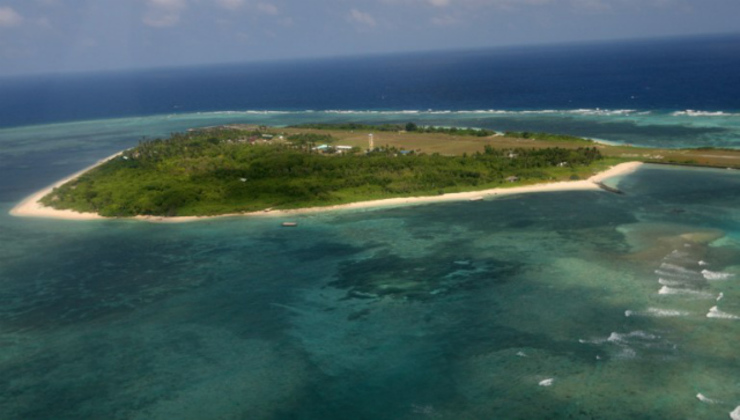China snubs the deadline to respond to the Philippine's arbitration case. What does this mean for Manila?
China ignores a December 15 deadline to respond to the Philippines' historic arbitration case on the South China Sea.
What does Beijing's refusal to participate mean for Manila's strategy to challenge the superpower's expansive claims and growing aggression?
Ayee Macaraig reports.

It’s David versus Goliath.
The Philippines takes China to court to settle the dispute over the strategic South China Sea. But the Asian superpower refuses to participate ignoring the December 15 deadline from a UN tribunal.
Manila says arbitration is its last resort after decades of Chinese diplomatic stonewalling and naval aggression.
The Philippines asks the tribunal to strike down China’s controversial 9-dash line citing the UN law of the sea treaty. Analysts doubt China will comply with an unfavorable decision.
CLARK ALEJANDRINO, FORMER DIRECTOR, ATENEO CHINESE STUDIES PROGRAM: This might be a way to resolve it but will it come out to our favor? So here we’re trying to achieve clarity but are we going to get the result that we want? If the UN body does rule in our favor, who’s going to enforce it?
The Aquino administration seeks global support for arbitration to pressure China into compliance. The United States is among the strongest voices backing its treaty ally.
ERNEST BOWER, CENTER FOR STRATEGIC AND INTERNATIONAL STUDIES: President Obama’s been relatively consistent on the South China Sea. He stuck with the right argument in my view, which is the United States has an interest in seeing these disputes resolved by rule of law, and based on using international institutions.
But Filipino legal experts question whether military agreements with the US apply to disputed areas.
BARACK OBAMA, PRESIDENT OF THE UNITED STATES: Our goal is not to counter China. Our goal is not to contain China. Our goal is to make sure that international rules and norms are respected.
Pundits also say crises in the Middle East and Ukraine and Obama’s loss in the November midterm polls weaken his pivot to Asia.
International law professor Julian Ku says depicting China as a rogue nation will not ensure its compliance. Beijing cites technical issues on jurisdiction to justify ignoring arbitration. Beyond the legal case Ku says the Philippines should improve on its diplomatic and military strategy.
JULIAN KU, INTERNATIONAL LAW PROFESSOR, HOFSTRA UNIVERSITY: You admit that you have no leverage against China because you don’t have the economic or military leverage over China, which is why you brought this case in the first place. That’s fine but that means if you get an award, you still have no leverage over China to get it enforced.
With or without China’s response the case proceeds and a decision is expected by early 2016. A comprehensive strategy will give Manila more leverage in this geopolitical chess game.
http://www.rappler.com/video/reports/77886-what-chinas-snub-means-for-ph-arbitration
http://www.rappler.com/video/reports/77886-what-chinas-snub-means-for-ph-arbitration

No comments:
Post a Comment
Note: Only a member of this blog may post a comment.